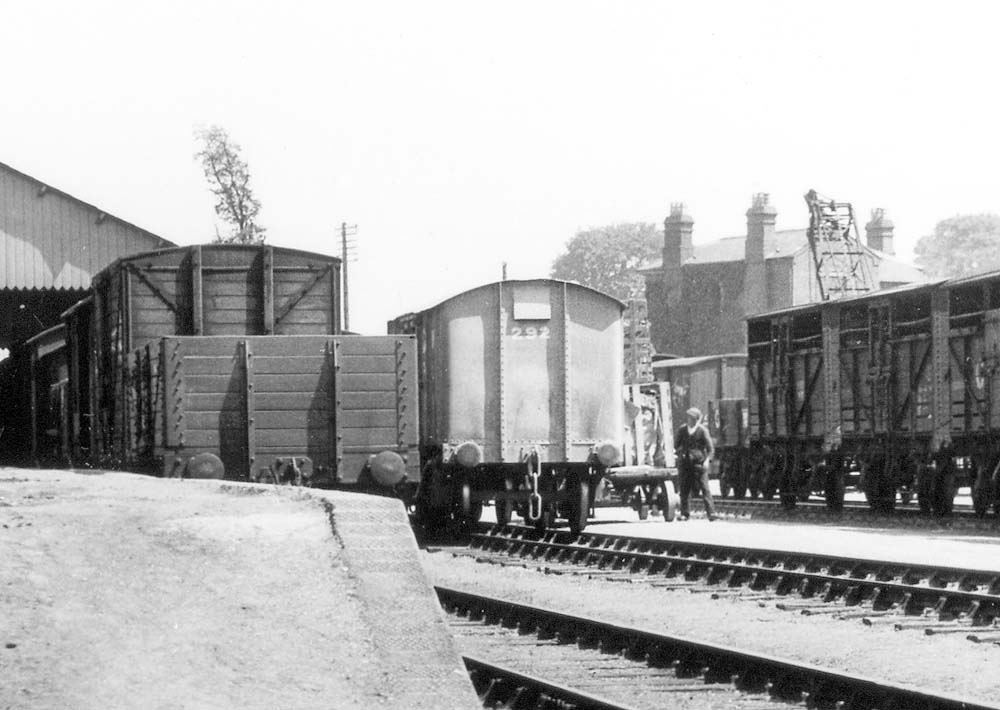|
|
 |
 |
|
GWR Route: The North Warwickshire Line
GWR Route: Stratford Upon Avon to Hatton
Stratford on Avon Station: gwrsa499a
 |
Close up of image 'gwrsa499' showing metal bodied covered
van No 292 on the middle No 2 road of Stratford's goods yard. Although of
similar construction to the Great Western Railway's ‘Iron Minks’,
which were introduced at the turn of the century, this particular van is
thought to be a PO (private owner) covered van belonging to a Cement
Manufacturer. Cement must be kept dry to prevent it hardening prematurely and
early methods of transportation included shipment in sealed wooden casks, but
with the introduction of easier to handle one hundredweight sacks, it became
more important to provide protection from inclement weather. The most likely
owner is Associated Portland Cement Manufacturers (ACPM), who introduced the
brand name ‘Blue Circle’ cement in the 1920s. It is known from
photographic evidence that they had another covered van numbered No 290 amongst
their wagon fleet. ACPM were the largest cement manufacturer in Britain at this
time and in 1932 had acquired the local cement works at Greaves Sidings near
Harbury, eight miles south of Leamington on the Great Western Railway main
line.
One of the goods yard's labourers can be seen with a
horse-drawn cart ready to transfer the load to one of the adjacent wagons. The
crate appears to be one of the open framed type indicating the load is light
and the crate is required only for basic stability during transportation.
Whilst the cargo in this case is unknown crates of a similar type can be seen
at Coventry Station in image 'lnwrcov558'.
Behind the two cattle wagons on the right can be seen the
jib of the yard crane. The 1929 RCH (Railway Clearing House) station handbook
identified that Stratford had a crane of five tons capacity, while the 1938 RCH
Station Handbook showed that this had increased to six tons. The Great Western
Railway installed a large number of replacement six ton manual yard cranes in
the early 1930s under the Government's Development (Loans Guarantees and
Grants) scheme. The principle contractor for the supply of these six ton yard
cranes was Messrs. Holt & Willetts of Cradley Heath and the crane in the
photograph shows the open framed jib arrangement of the standard six ton yard
cranes installed in this period (GWR Drawing No 104469).
Robert Ferris
 back back

|
|
|
